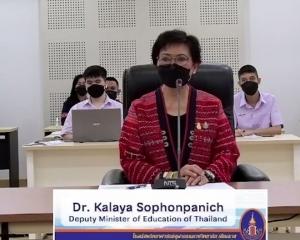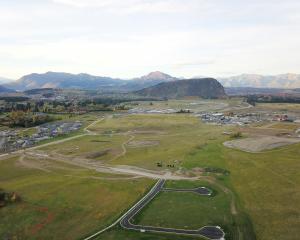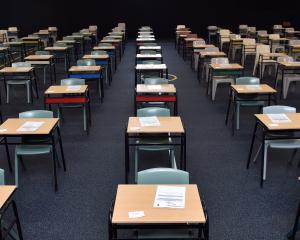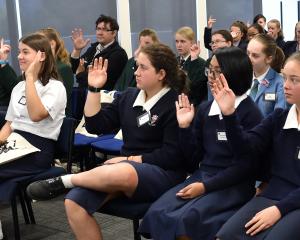Secondary schools with under-performing groups of Maori and Pacific Island pupils will be given firm instructions by Education Minister Hekia Parata on what they need to do to improve.
Using herself as an example of a Maori who achieved, Mrs Parata was blunt in an answer to a question from a delegate attending the National Party's Mainland Conference in Dunedin on Saturday.
Asked how she was going to get 85% of all secondary school pupils passing NCEA level two, or equivalent, by 2016, Mrs Parata said it would involve working with schools and "giving them a number" that was relevant, practical and specific.
"We know who these kids are, which school they attend and their current level of achievement. We know where they are.
"These are real kids with real names in real streets and go to a school near you," she told about 160 delegates.
The current pass rate was 80%. One pupil in five left secondary school without a good education, she said.
New Zealand had slipped to seventh on the OECD numeracy and literacy ladder, having been overtaken by Hong Kong, Singapore and Korea.
However, if just New Zealand European pupils were counted, New Zealand was second on the ladder, Maori were 34th and Pacific Islanders were 44th.
To get 85% of pupils leaving school with a good education and passing NCEA level two, Maori pass rates needed to triple and Pacific Island rates needed to quadruple, Mrs Parata said.
That would take commitment and dedication from everyone involved in the education system.
The minister made it clear accountability started with her but spread through to boards of trustees, principals, teachers and parents, who needed to make sure their children were at school by the first bell and did not leave until the last bell.
Having children better-behaved at school would leave more time for teachers to teach, rather than control, she said.
The most important platform was one of proficient teaching.
All the evidence pointed to good teaching having the most effect on achievement rates and Mrs Parata said she would increase accountability in those areas.
"I can't raise achievement levels. The 54,000 teachers in classrooms and their 2500 principals can do that. We need to support them."
But there was still a need to "call out" bad teachers and note underachievement.
Data was being collected and decisions were being made on how to use it.
National standards were a key part of the data collection and the minister believed the Government had won the battle with teacher unions on national standards.
Of the 2452 schools required to file their reports, 2420 had already done so.
The ministry was working with the ones still to report.











